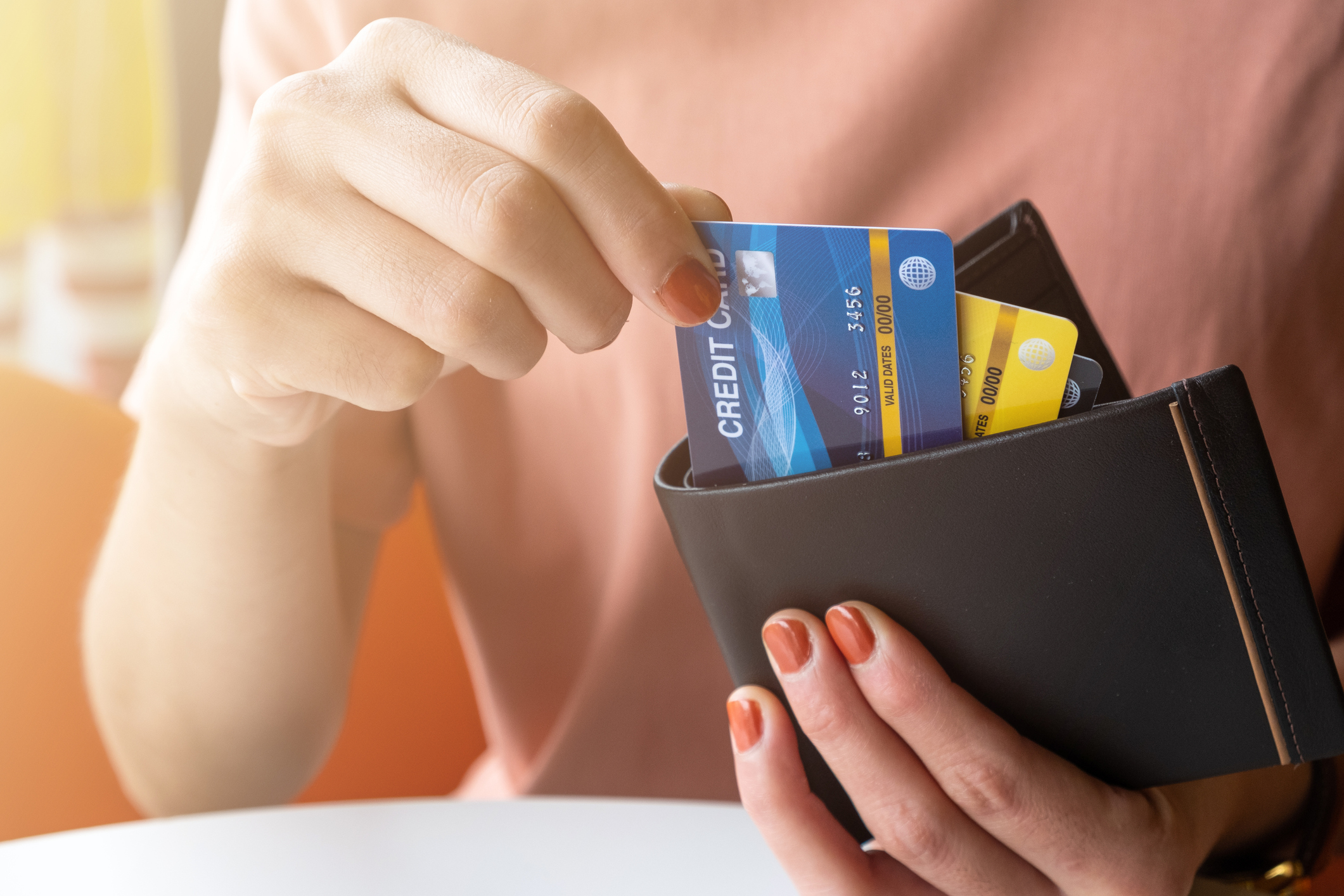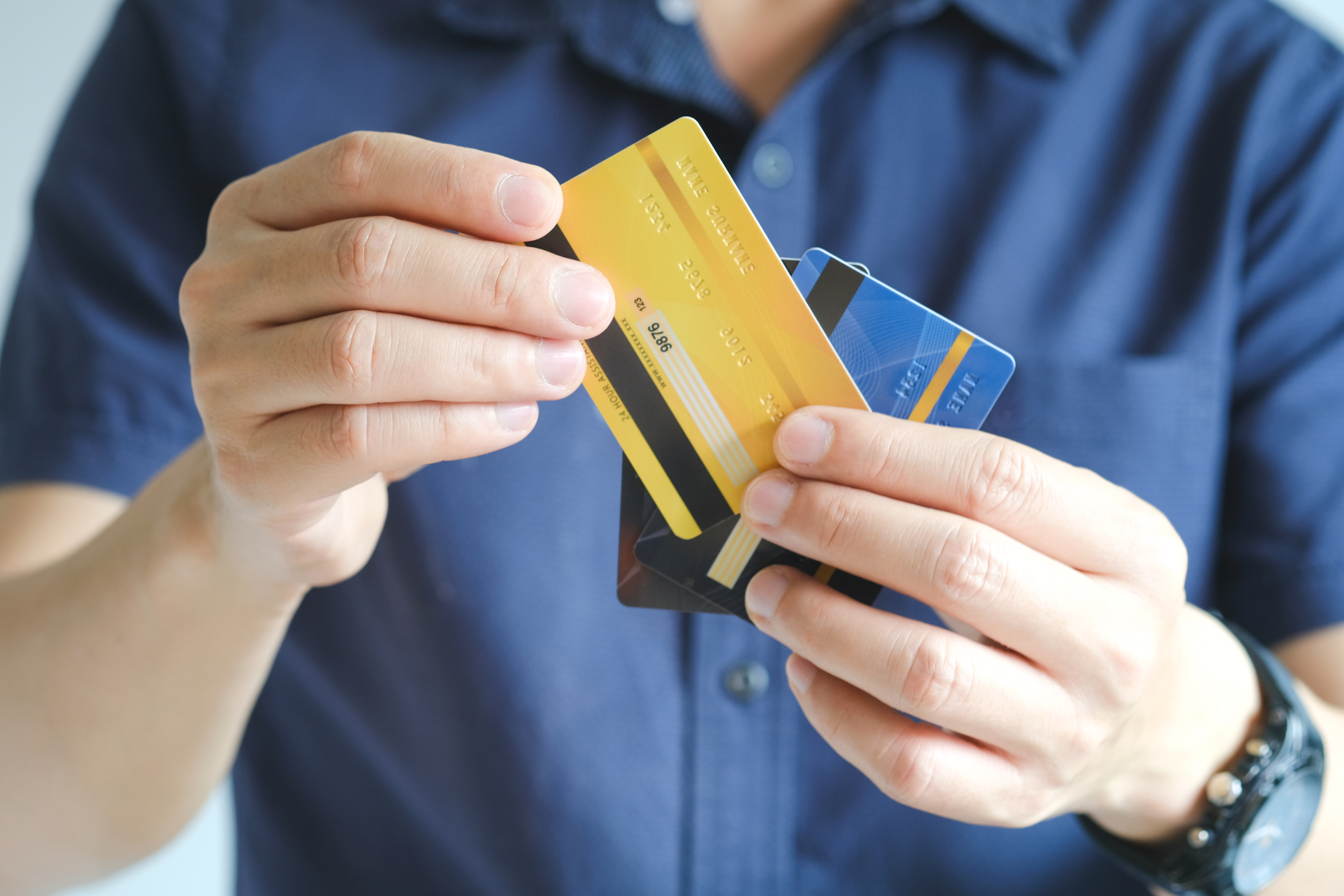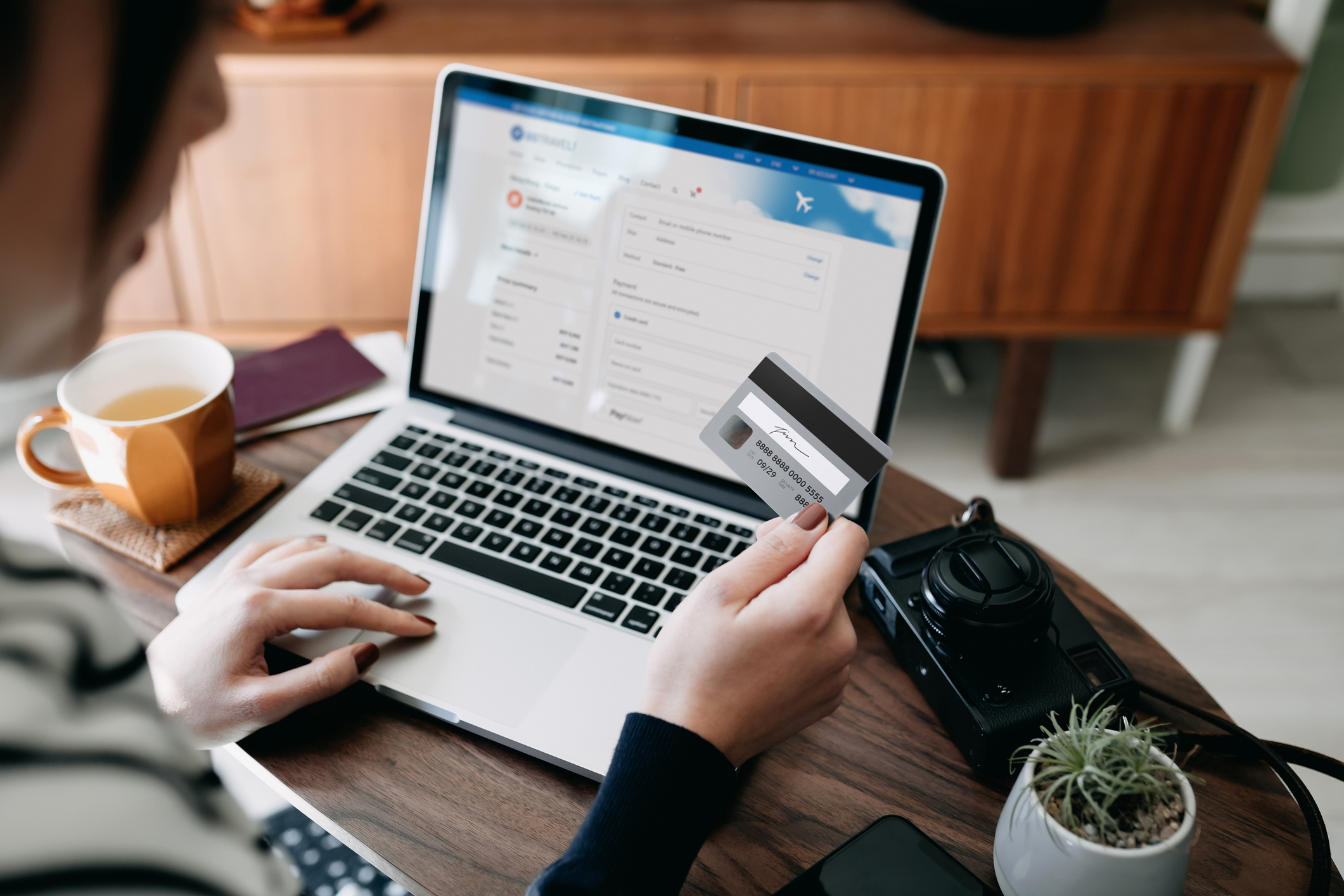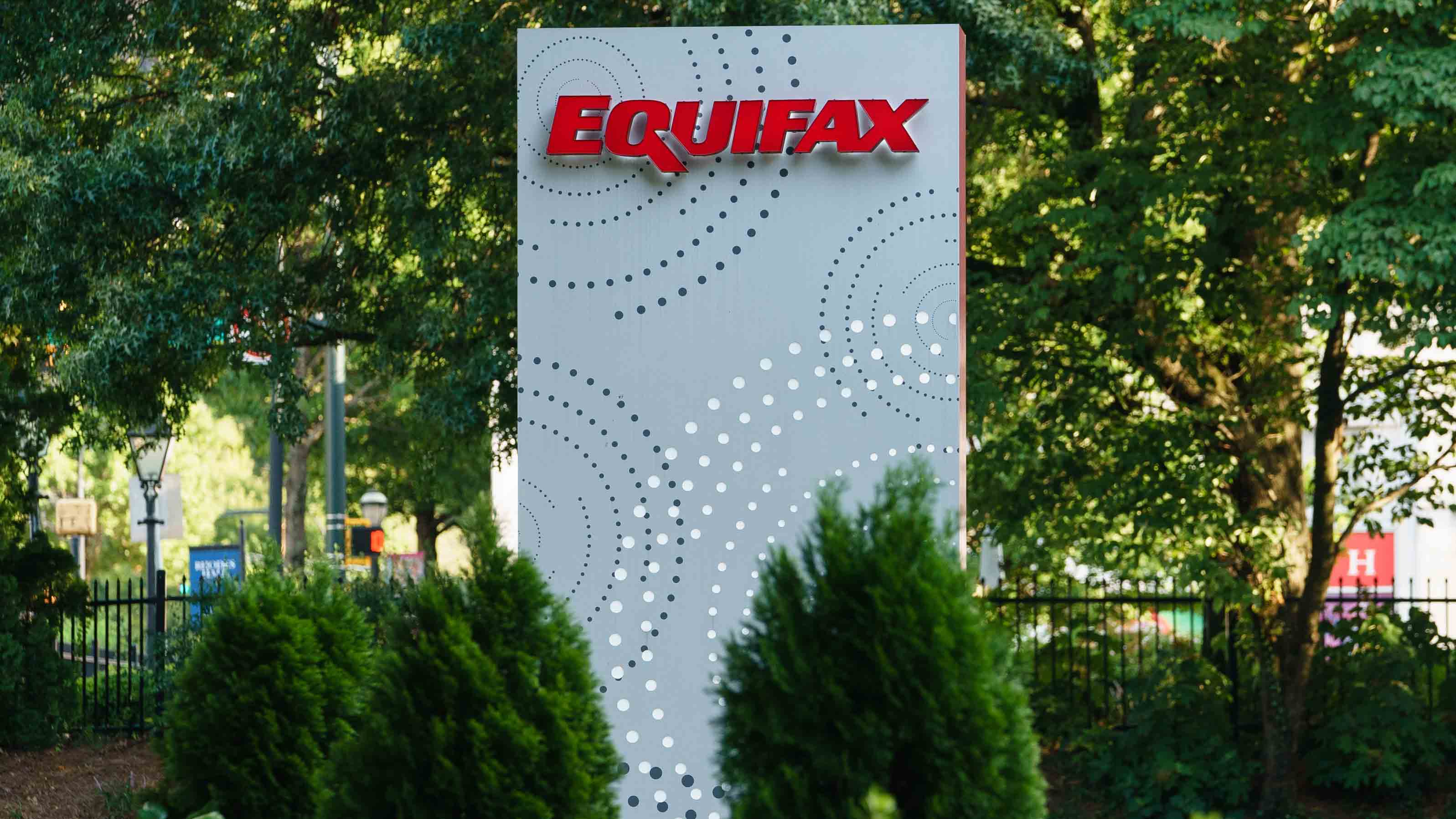My Wallet Was Stolen. Now What?
Act quickly to prevent fraudulent charges on your accounts and to protect your identity.

Profit and prosper with the best of Kiplinger's advice on investing, taxes, retirement, personal finance and much more. Delivered daily. Enter your email in the box and click Sign Me Up.
You are now subscribed
Your newsletter sign-up was successful
Want to add more newsletters?

Delivered daily
Kiplinger Today
Profit and prosper with the best of Kiplinger's advice on investing, taxes, retirement, personal finance and much more delivered daily. Smart money moves start here.

Sent five days a week
Kiplinger A Step Ahead
Get practical help to make better financial decisions in your everyday life, from spending to savings on top deals.

Delivered daily
Kiplinger Closing Bell
Get today's biggest financial and investing headlines delivered to your inbox every day the U.S. stock market is open.

Sent twice a week
Kiplinger Adviser Intel
Financial pros across the country share best practices and fresh tactics to preserve and grow your wealth.

Delivered weekly
Kiplinger Tax Tips
Trim your federal and state tax bills with practical tax-planning and tax-cutting strategies.

Sent twice a week
Kiplinger Retirement Tips
Your twice-a-week guide to planning and enjoying a financially secure and richly rewarding retirement

Sent bimonthly.
Kiplinger Adviser Angle
Insights for advisers, wealth managers and other financial professionals.

Sent twice a week
Kiplinger Investing Weekly
Your twice-a-week roundup of promising stocks, funds, companies and industries you should consider, ones you should avoid, and why.

Sent weekly for six weeks
Kiplinger Invest for Retirement
Your step-by-step six-part series on how to invest for retirement, from devising a successful strategy to exactly which investments to choose.
My wallet was stolen a few days ago. My driver's license was in it. I canceled all my cards immediately when I found out. I've been checking my accounts daily to make sure that there are no fraudulent charges. What is the best way to check that my identity has not been stolen or that there are no accounts opened in my name?
I'm sorry to hear about your stolen wallet. It sounds like you've made some good first steps.
It's important to notify your credit-card companies and bank immediately and to monitor your accounts for fraudulent charges. Also watch your credit reports to make sure that an ID thief doesn't open new accounts in your name.
From just $107.88 $24.99 for Kiplinger Personal Finance
Become a smarter, better informed investor. Subscribe from just $107.88 $24.99, plus get up to 4 Special Issues

Sign up for Kiplinger’s Free Newsletters
Profit and prosper with the best of expert advice on investing, taxes, retirement, personal finance and more - straight to your e-mail.
Profit and prosper with the best of expert advice - straight to your e-mail.
The best way to do that is to contact the credit bureaus to make a fraud alert, which will require lenders to make some effort to verify your identity before issuing new credit in your name. The fraud alert also gives you a free copy of your credit report from each of the three bureaus. Order those copies and review them for any suspicious activity -- including accounts you didn't open, as well as strange addresses or activity on old cards, which can provide clues that a thief has your information.
It can take a while before an identity thief strikes, so it's important to continue to monitor your accounts and credit reports. An initial fraud alert lasts for only 90 days, but you can get an extended fraud alert if you have a police report documenting the stolen wallet.
This extended alert stays on your report for up to seven years and entitles you to two free credit reports from each of the bureaus every year (in addition to the free reports that everyone can get every year). To file a fraud alert, contact one of the credit bureaus (Experian, Equifax or TransUnion), which will alert the other two.
To be even more safe, you might want to put a credit freeze on your account, which won't let any new lenders see your credit report unless you specifically give them permission. Credit freezes can be expensive ($10 for each of the three bureaus to initiate the freeze and have it lifted -- and it's only effective if you do all three). Many states offer free freezes for victims of identity theft.
Still, the freeze can be a hassle if you're planning on taking out a loan soon. Depending on the state, it can take from 15 minutes to three days to lift the freeze. But it does offer even stronger protection than a fraud alert. See my column for more information about fraud alerts and credit freezes.
For more advice about what to do if your wallet is stolen, including a detailed checklist of steps to take, see the Identity Theft Resource Center's fact sheet, My Wallet or PDA Was Stolen, Now What? Also see the Federal Trade Commission's identity theft page for more information and advice.
For tips on preventing ID theft, see Your ID Theft Prevention Kit.
Profit and prosper with the best of Kiplinger's advice on investing, taxes, retirement, personal finance and much more. Delivered daily. Enter your email in the box and click Sign Me Up.

As the "Ask Kim" columnist for Kiplinger's Personal Finance, Lankford receives hundreds of personal finance questions from readers every month. She is the author of Rescue Your Financial Life (McGraw-Hill, 2003), The Insurance Maze: How You Can Save Money on Insurance -- and Still Get the Coverage You Need (Kaplan, 2006), Kiplinger's Ask Kim for Money Smart Solutions (Kaplan, 2007) and The Kiplinger/BBB Personal Finance Guide for Military Families. She is frequently featured as a financial expert on television and radio, including NBC's Today Show, CNN, CNBC and National Public Radio.
-
 The New Reality for Entertainment
The New Reality for EntertainmentThe Kiplinger Letter The entertainment industry is shifting as movie and TV companies face fierce competition, fight for attention and cope with artificial intelligence.
-
 Stocks Sink With Alphabet, Bitcoin: Stock Market Today
Stocks Sink With Alphabet, Bitcoin: Stock Market TodayA dismal round of jobs data did little to lift sentiment on Thursday.
-
 Betting on Super Bowl 2026? New IRS Tax Changes Could Cost You
Betting on Super Bowl 2026? New IRS Tax Changes Could Cost YouTaxable Income When Super Bowl LX hype fades, some fans may be surprised to learn that sports betting tax rules have shifted.
-
 TransUnion Fined $23M For Tenant Screening, Credit Freezes
TransUnion Fined $23M For Tenant Screening, Credit FreezesGovernment charges TransUnion over illegal rental background checks and security freezes on consumer credit reports.
-
 Credit Cards vs Charge Cards: What Are the Differences?
Credit Cards vs Charge Cards: What Are the Differences?All you need to know about credit cards vs charge cards — differences, pros and cons.
-
 How Many Credit Cards Should I Have?
How Many Credit Cards Should I Have?How many credit cards should you have? The answer isn’t as straightforward as you might think — it all depends on your financial situation.
-
 Credit card delinquency expected to increase in 2023
Credit card delinquency expected to increase in 2023Credit card and personal loan delinquency rates are expected to increase this year.
-
 What Is a Good Credit Score?
What Is a Good Credit Score?Having a good credit score can save you hundreds, even thousands of dollars on credit cards, mortgages and other loans.
-
 Best Credit Cards for Bad Credit 2023
Best Credit Cards for Bad Credit 2023If used wisely, these credit cards can help you dig out of bad credit; you may even earn 2% cash back.
-
 How to Freeze Your Credit in Three Steps
How to Freeze Your Credit in Three Stepscredit & debt Freezing your accounts at the three major credit bureaus is the best way to prevent thieves from opening new credit accounts in your name.
-
 Did Equifax Botch Your Credit Score?
Did Equifax Botch Your Credit Score?credit score Equifax is in the news–yet again–this time for sending lenders the wrong credit score. Here’s how to find out if you were affected and what to do next.